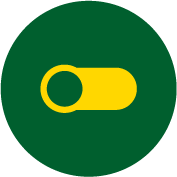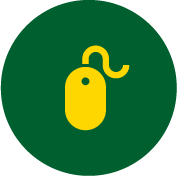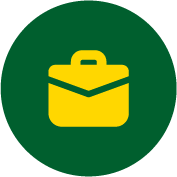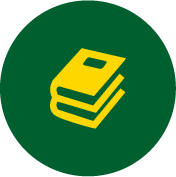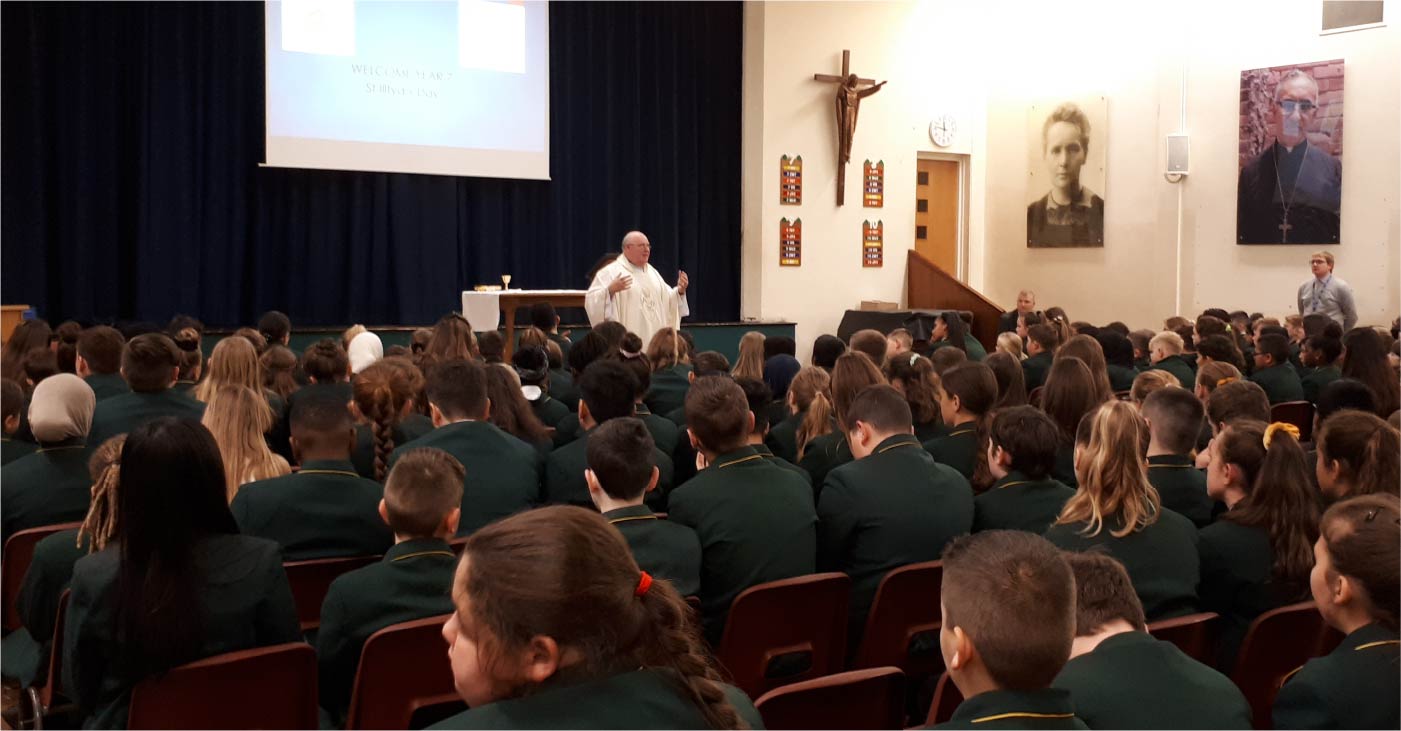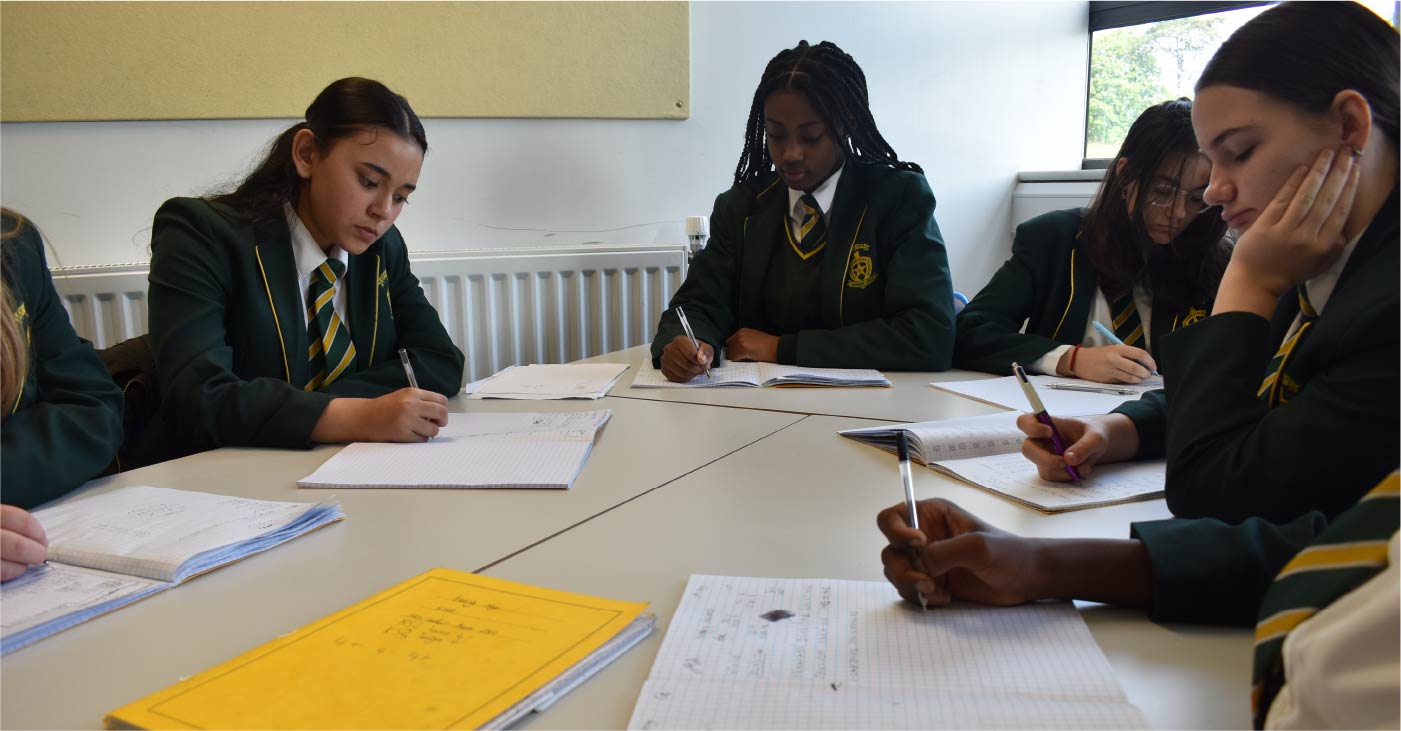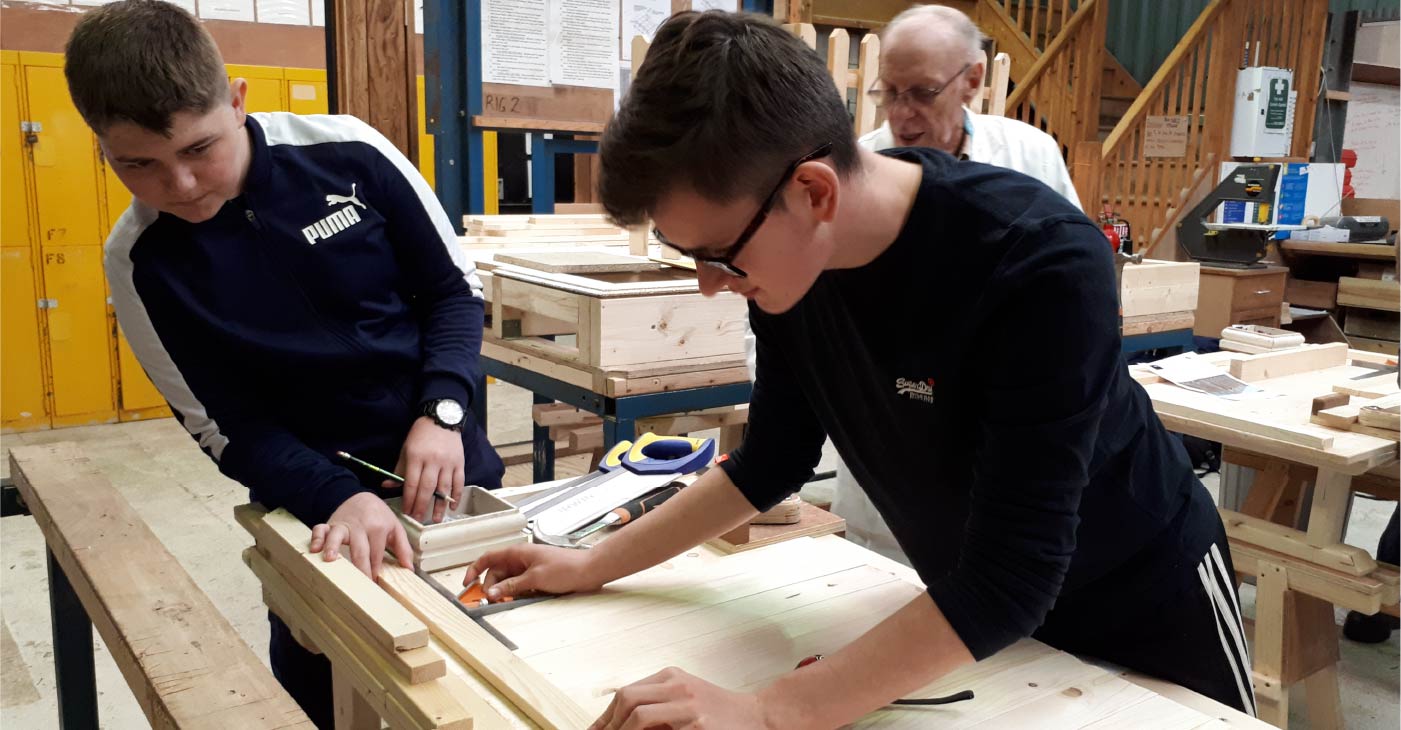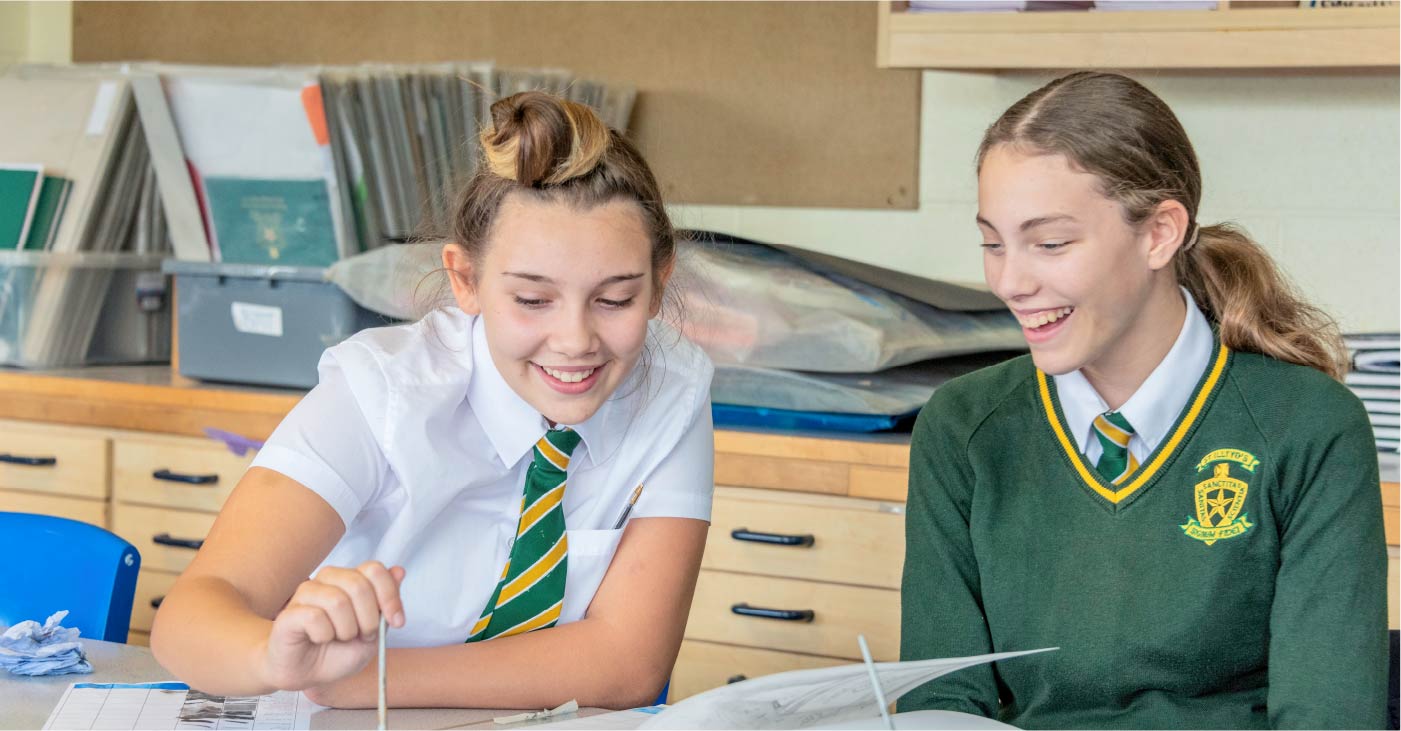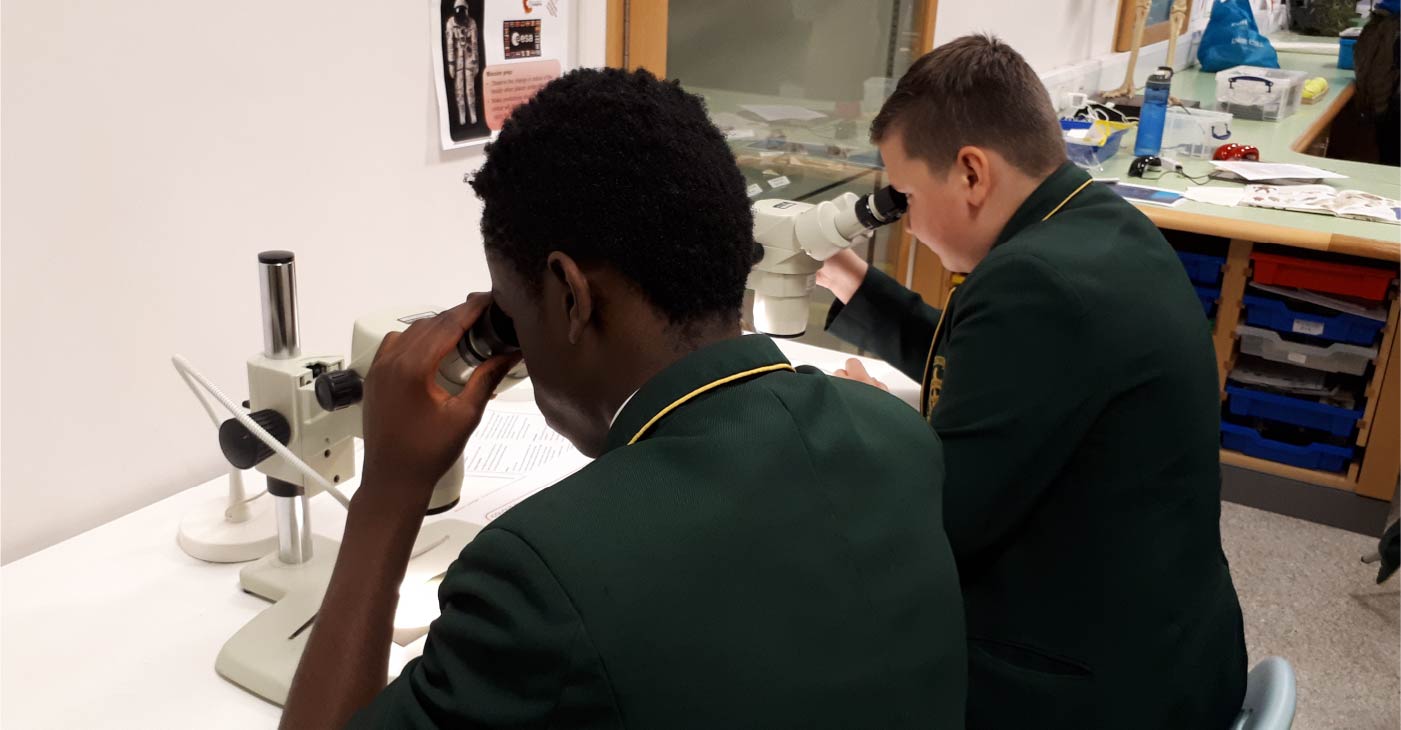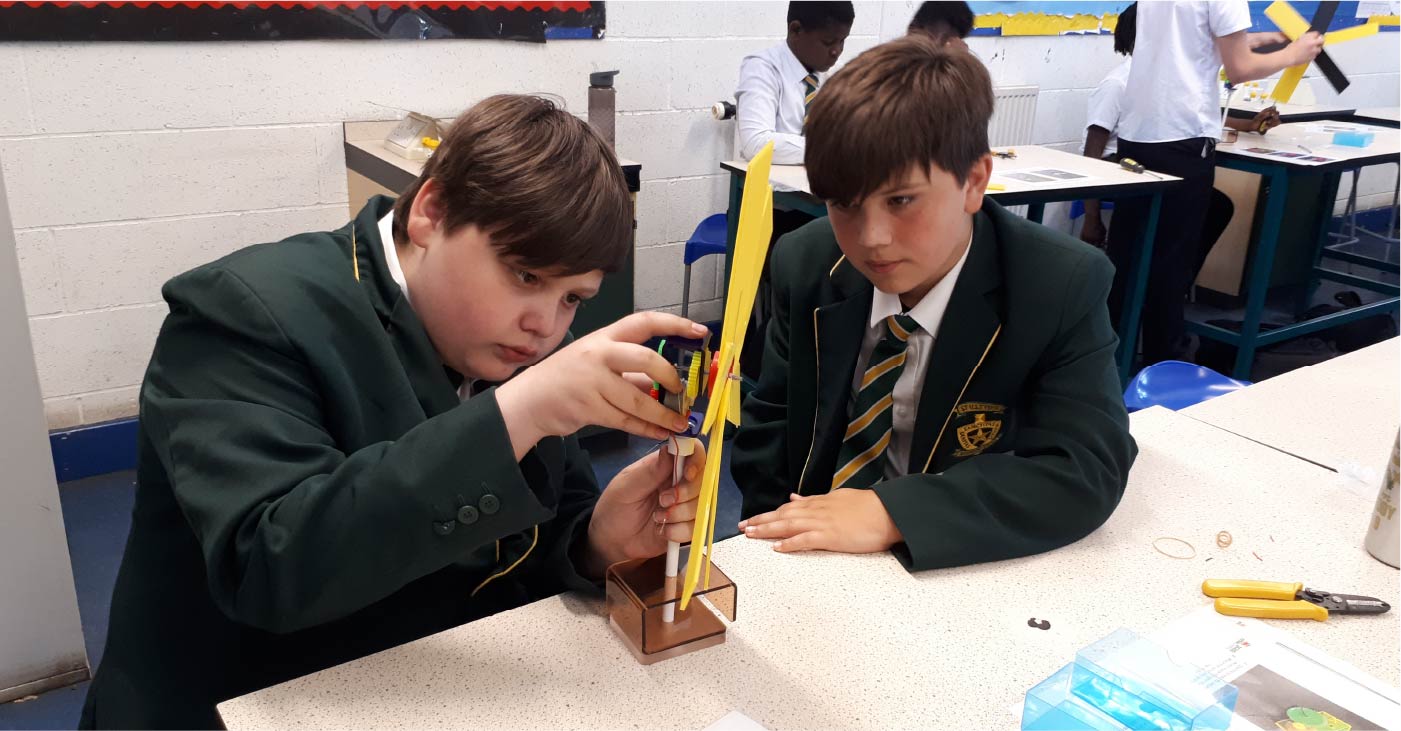Estyn Inspection
The school was last inspected in 2019, please see the full report below
St Illtyd’s Estyn Inspection Report 2019
In response to this inspection Estyn completed a review and their letter explaining is below
A Summary of the New Curriculum
Through interviews, meetings and surveys we have been able to engage with all members of our community to develop a new curriculum, which we are launching this September, 2022.
We have established six areas of learning, (AOLEs), within the school: Expressive Arts, Health and Wellbeing, RE and Humanities, Languages, Literacy and Communication, Mathematics and Numeracy and Science and Technology.
All teaching staff have undertaken reading and research. They have also attended professional learning focused on this new curriculum.
Our whole staff have also agreed a common vision. We have focused on the values that we wish to see in the young people in our care and our role in developing their relationship with God. We have also agreed on a series of commitments which we will do in order to make this happen.
The experiences, knowledge and skills that pupils encounter in the six AOLEs will enable them to realise the four purposes.
The four purposes are attributes that we wish our pupils to leave St Illtyd`s with. We will develop them to be ambitious, capable learners, ethical, informed citizens, enterprising, creative contributors and healthy, confident individuals. Christ will be at the centre of this development as will an emphasis on the gospel values of care, compassion, love and forgiveness.
The curriculum will be broad and balanced and includes learning opportunities within and across all of the areas of learning and experience. It encompasses the concepts in all of the statements of what matters and provides appropriate progression in accord with the principles of progression. It also aligns to the mandatory requirements of teaching Religion, values and ethics, English, Welsh, relationship and sexuality education and the cross curricular skills of literacy, numeracy and digital competence.
The development and learner progression will proceed with the involvement of teachers, pupils and parents. Progression will be assessed throughout the year and will also be reported on, allowing all to see the progress made and what needs to be done to progress even further.
These are underpinned by the mandatory principles of progression which describe what it means for learners to progress. We involve a variety of evidence informed assessment strategies to enable each individual learner to make progress at an appropriate pace. We ensure our processes identify learners who require further support or challenge and provide evidence which informs the next steps in learning for groups and individuals. Our assessment arrangements ensure active engagement between learners and teachers. It is based on ongoing reflection on where a learner is, what their next steps are and what is required to support them in achieving these.
The curriculum itself will also progress and develop like the pupils it serves. Through a process of review, feedback and ongoing revision, (involving all members of the community), the curriculum will evolve and in doing so will enable the school to evolve, to grow, to improve and to allow all to achieve all that they can.




